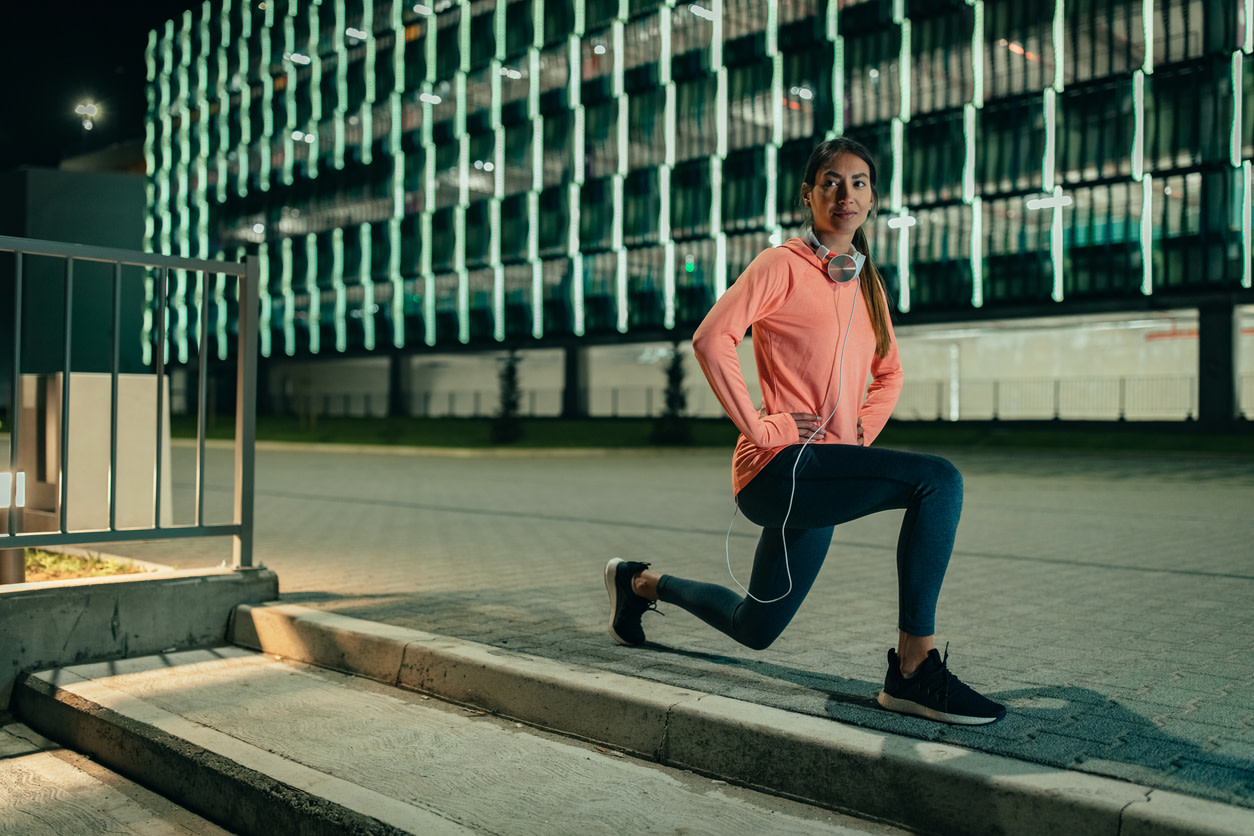6 Benefits of Working Out at Night, According to Physical Therapists
Discover the benefits of working out at night and get expert-recommended exercises for your evening routine.
$0 cost to you
Published Date: Oct 22, 2024
Table of Contents
5 PT-Recommended Exercises to Do at Night
Want expert care? Check if you're covered for our free program →- Lunge
- Push-Up on Knees
- Shoulder Rows
- Downward Dog
- Child's Pose
